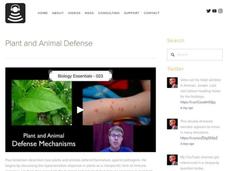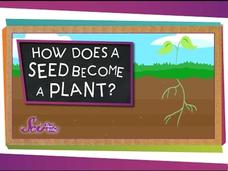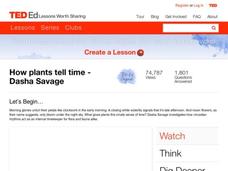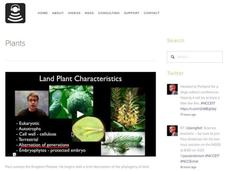Mediacorp
The Fascinating World of Tiny Creatures and Weaver Ants
This video explores the fascinating world of undergrowth creatures in Singapore, highlighting their unique behaviors and roles in the ecosystem. From the intricate camouflage of the bag worm to the engineering skills of the weaver ants,...
Mediacorp
The Secret Life of Raffles Banded Langur
In this video, we explore the endangered Raffles Banded Langur, a large tree-dwelling monkey found in Malaysia and Singapore. With only a few hundred individuals remaining, this species faces the threat of habitat destruction. Narrated...
Mediacorp
Singapore's Fruiting Season: A Feast for Animals in the Forest
This video showcases the fruiting season in Singapore, where ripe durians fall to the ground and residents and animals alike feast on them. It highlights the acrobatic skills of squirrels as they jump over 3 meters to reach the fruits....
Catalyst University
Biomechanics and Events of the Sit-to-Stand
In this video, we explore the 4 stages of sitting-to-standing, and we will discuss the limits, muscular activation, and critical events of each phase.
Nature League
How Old Is Water? | Q&A with Brit!
This week on Nature League, Brit Garner answers your questions about life on Earth, Nature League, and herself.
Nature League
Gregor Mendel: The Father of Modern Genetics
This week on Nature League, Brit Garner explores the life and times of Gregor Mendel, the monk who became the father of modern genetics, with some re-enactment help from her friend Adrian.
Professor Dave Explains
The Terrestrial Environment
We just learned about the aquatic environment, so now let's head onto dry land! How did life initially get onto land? What can we learn about soil? What are the carbon, nitrogen, and phosphorus cycles? Let's check it all out!
Curated Video
How to make your food 30x more delicious
You’ve heard a lot about umami, but you probably don’t know the full story.
Wonderscape
Factors Influencing Fossilization: The Journey to Becoming a Fossil
Understand the complex process of fossilization and the factors that influence whether an organism becomes a fossil. Learn about the rarity of fossilization, with fewer than 10% of today's organisms likely to become fossils. Explore how...
Bozeman Science
Plant and Animal Defense
Explain the defense systems of both plants and animals against pathogens with a biology video. It covers the disruption of the immune system through hypersensitive responses, normal responses, nonspecific immune responses, as well as the...
Bozeman Science
Plant Structure
Let's get to the root of biology. A video describes the difference between monocot and dicot plants. Then it explains the three main types of tissues in plants and the cells within each of these tissues.
FuseSchool
Plant Growth: Auxins and Gibberellins
Why does a plant grow toward the sun? The video, part of a Fuse School Plants playlist, explains the chemical processes behind plant growth. It details how auxins, gibberellins, and the sun work together. From curving plant stems to...
Crash Course
Biology Before Darwin: Crash Course History of Science #19
When did biology become a proper science? Travel back in time to the evolution of natural history during part 19 in an ongoing History of Science series. Pupils discover early pioneers in the study of plants and animals, the birth of...
Curated OER
Life Cycle of a Flowering Plant
The development of the male and female gametes in a plant is illustrated, explaining plant fertilization, pollination, and reproduction. Overall, get a complete picture of the life cycle of a flowering plant with some wonderful details...
American Chemical Society
The Chemistry of Poison Ivy
Leaves of three, let it be! Why does poison ivy produce such a terrible, itchy rash? Young outdoor enthusiasts get acquainted with urushiol, poison ivy's rash-producing natural oil, with a video from the American Chemical Society's...
SciShow Kids
How Does A Seed Become A Plant?
What is most necessary for seeds to grow into a plant? Watch a video that describes and models how a seed can become a plant with the help of two basic components.
Education Development Center
What's Cooking? Photosynthesis
Who would expect to learn about photosynthesis during a cooking demonstration? That is exactly what happens when you view this film, one of the best photosynthesis videos you will find! Because the lesson is deliciously delivered through...
TED-Ed
How We Think Complex Cells Evolved
Being able to absorb the abilities of other life forms may seem like something taken from a superhero movie, but sometimes reality is stranger than fiction. Join the narrator as he takes viewers back billions of years to investigate how...
Be Smart
Do Plants Think?
Plants react to many different stimuli, but do they think? After many years, scientists now have a definite answer. A video shares the theories and facts as part of a larger biology playlist. From plants listening to music to plants...
Curated OER
Fungi Plant Growth - The Private Life of Plants
Time-lapse photography was used to capture the growth of different fungi. This may evoke "Eews!" and "Icks!" from your class. The fungal life cycle is briefly described and then the video stops short. The title is in error; fungi are not...
Amoeba Sisters
Asexual and Sexual Reproduction
Why do some organisms reproduce sexually, others reproduce asexually, and some both? Biology scholars examine the pros and cons of sexual and asexual reproduction through a short, informative video. The resource offers great examples of...
TED-Ed
How Plants Tell Time
Can someone really have a "biological clock"? Discover why many organisms on earth have an inherent awareness of where they are in the day's cycle.This video discusses animal adaptations, the earth's revolutions, and how light and...
Bozeman Science
Plants
Use a biology video to focus on four main groups of plants: bryophytes, ferns, gymnosperms, and anglosperms. It explains the parts of plants, life cyles, evolution of plants, and even touches upon sporophyte and gametophyte.
Other popular searches
- Plant Biology Photosynthesis
- Grade 11 Plant Biology
- Plant Biology Projects
- Plant Biology Leave
- Plant Biology Flowers
- Plant Biology Vocabulary
- Plant Biology Unit Plans
- Plant Biology Healthy Plants
- Plant Biology Powerpoint's
- Plant Biology Seeds
- Plant Biology Powerpoints
- Plant Biology Regeneration
















